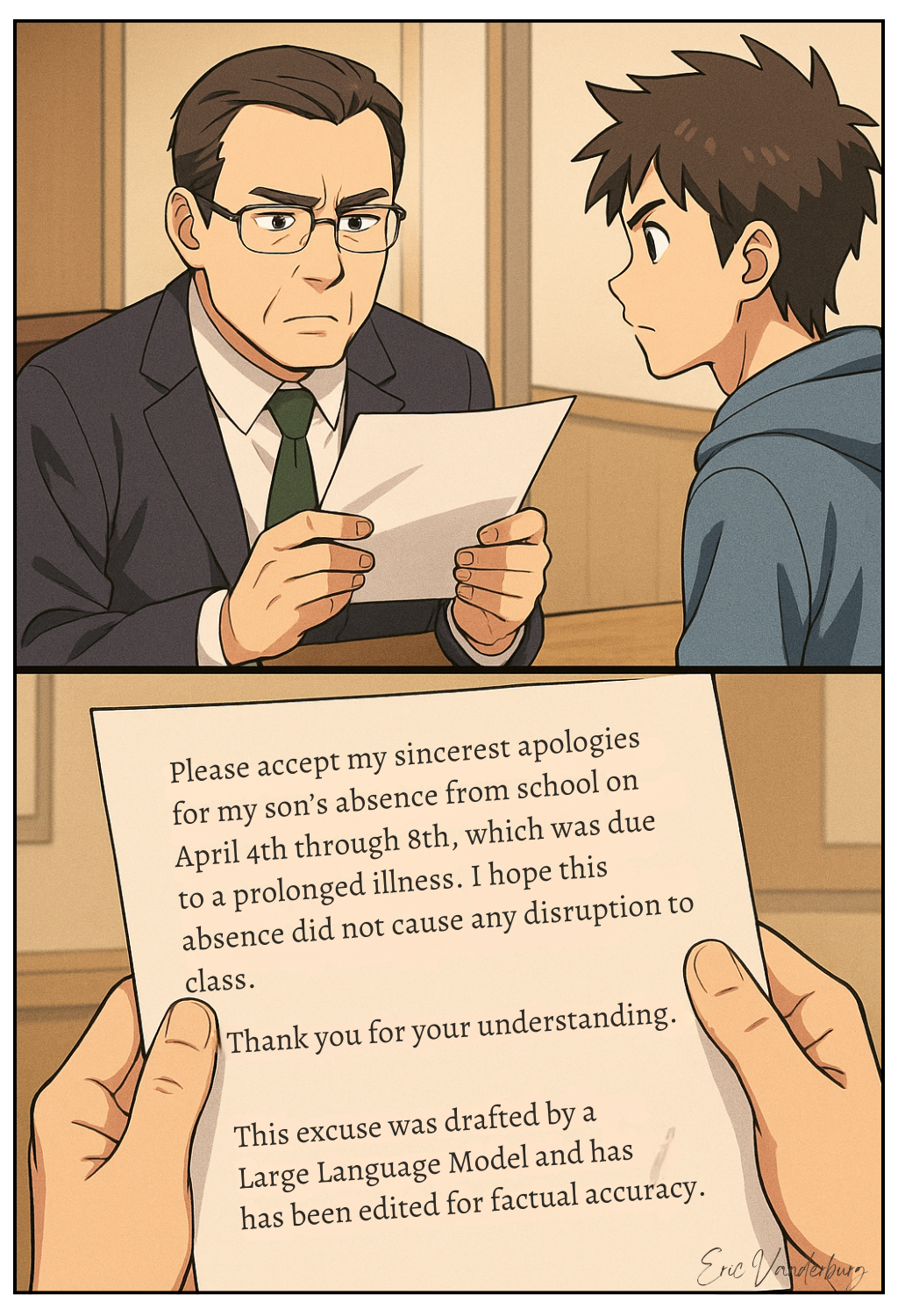LLM Excused Absence
We have outsourced our thinking to machines, and in doing so, we have apparently also outsourced our attention spans. The modern workflow for a shocking number of people is as follows: 1. Pose query to AI. 2. Highlight the text. 3. Hit copy. 4. Hit paste. 5. Hit send/print/publish. The crucial step that exists between 4 and 5—the step known to the ancients as “proofreading”—has been unceremoniously deleted from the human repertoire.
This isn’t just laziness; it’s a blind, almost religious faith in the algorithm. The AI said it, so it must be true, coherent, and contextually appropriate. The result is a digital landscape littered with the comical corpses of unedited AI responses.
You can spot them a mile away. They are the emails that begin with the hilariously formal, “I hope this message finds you well,” when you’re just replying to your cousin Dave about what time to meet for burgers. They are the social media posts that describe a backyard BBQ as “a curated gathering to facilitate community bonding and gastronomic enjoyment.” They are the work reports that confidently state the team will “leverage core competencies to synergize going-forward action items,” a sentence that contains four nouns and zero meaning.
The most glorious fails occur when the AI, in its desperate attempt to be helpful, makes a wild guess that the user doesn’t bother to correct. The middle-schooler asking for a paragraph on “the causes of the Civil War” might accidentally submit an essay that begins, “The American Civil War was primarily sparked by intergalactic trade disputes and the discovery of a new element on Mars,” because the AI misheard “states’ rights” as “space fights.” The teacher, grading this at 11 PM, has their AI check for spelling errors, then gives the kid an A.
This blind copy-pasting creates a bizarre form of identity theft, where everyone starts to sound like the same overly polite, vaguely corporate, and utterly soulless android. The heartfelt condolence note and the furious complaint to the water company both carry the same sterile, AI-generated veneer, both likely ending with the same cheerful, “Let me know if you need any further assistance!”
The ultimate tragedy is that the AI often gets it almost right. It’s 90% of the way there. That last 10%—the part that requires a human touch, a dash of personality, or just a simple fact-check—is the chasm into which dignity and common sense plummet. The machine did its job; it generated words. The human failed their job, which was to ensure those words weren’t completely, hilariously, and publicly unhinged. The future isn’t robots taking over the world; it’s robots watching in silent, judgmental awe as we confidently present their first drafts as our own finished work.

Discussion ¬